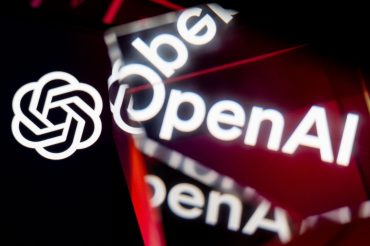
- AI
- AI Agents
- Workflow Automation
OpenAI Expands ChatGPT Agent Access to $20 Plus Subscribers
6 minute read

ChatGPT Agent technology expands autonomous AI capabilities to millions of Plus subscribers for complex digital task automation
Key Takeaways
- OpenAI expands ChatGPT Agent to $20 Plus subscribers following initial availability for $200 Pro users, marking a significant democratization of autonomous AI capabilities for mainstream consumers.
- Agentic AI products projected to generate 20-25% of OpenAI’s revenue as the company pivots from conversational assistants to autonomous digital workers capable of complex task completion.
- $3 billion SoftBank investment backs OpenAI’s agent strategy despite the company reporting $5 billion losses, highlighting investor confidence in the transition to autonomous AI systems.
Introduction
OpenAI transforms its mainstream ChatGPT service from a conversational assistant into an autonomous digital worker with the rollout of ChatGPT Agent to $20 Plus subscribers. The deployment, which takes several days to complete, represents a strategic shift toward agentic AI that can independently perform complex, multi-step tasks using its own virtual computer.
The Agent mode enables AI to handle complete workflows from start to finish, including calendar management, meal planning with ingredient purchasing, and competitor analysis for presentation creation. This advancement positions OpenAI at the forefront of the transition from passive AI assistants to active digital agents capable of real-world task execution.
Key Developments
ChatGPT Agent combines OpenAI’s Deep Research capabilities with its Operator web-browser technology to create what CEO Sam Altman describes as a “unified agent.” The system operates similarly to human computer users, opening websites, navigating interfaces, and logging into services when necessary.
Users maintain control through interruption capabilities and permission requests for consequential actions like transactions or email sending. The agent mode activates through the tools dropdown menu, providing direct user control over when autonomous actions begin. Tech Icons confirms the feature’s availability for Pro subscribers, with Plus users receiving access through the current rollout. This feature is not yet available in Switzerland or the EEA.
The system integrates with external services including Gmail, GitHub, and Google Drive, enabling seamless transitions from conversation to action. This integration allows the agent to utilize existing user data for tailored responses and automated workflow execution.

Market Impact
OpenAI’s tiered monetization strategy creates clear revenue pathways across market segments. ChatGPT generates at least $4 billion in annualized revenue, with agentic features now included in the $20 monthly Plus tier. The $200 Pro subscription targets power users, while specialized AI agents command $2,000 to $20,000 monthly for industry-specific applications.
The pricing structure pressures competitors to accelerate their agentic AI development while allowing OpenAI to capture value from consumers to enterprises. The company’s large installed user base provides rapid feedback collection and iteration advantages over rivals in deployment scale and data gathering.
SoftBank’s $3 billion investment specifically targets agentic AI development, demonstrating institutional confidence despite OpenAI’s reported $5 billion losses. The investment underscores the capital-intensive nature of advanced AI scaling and the need for high-margin enterprise products to achieve profitability.
Strategic Insights
The rollout signals a fundamental industry shift from conversational AI to autonomous digital workers. This transition democratizes access to sophisticated automation previously available only to large organizations with extensive technical resources. Small businesses gain access to professional-grade task automation that levels competitive playing fields.
OpenAI’s product expansion strategy creates clear upsell pathways from Plus to Pro, Team, and Enterprise tiers as customer sophistication increases. This progression enables revenue expansion while fostering user growth through gradually increasing capability requirements.
The agentic approach positions AI as a replacement for human digital labor in repetitive, knowledge-intensive tasks. Industries seeking automation of complex workflows represent primary adoption targets, with the technology’s multi-task capabilities offering significant operational efficiency gains.
Expert Opinions and Data
Sam Altman, OpenAI CEO, emphasizes user demand for unified agent capabilities: “People wanted a unified agent that could go off, use its own computer, and do real complex tasks for them.” This integration addresses market demand for seamless tool transitions and universal task completion.
Industry experts view the rollout as redefining mainstream AI capabilities, with many considering agentic AI the “next frontier” in productivity automation. The agent’s performance improvements reflect enhanced scores on task completion evaluations, establishing high-performance standards for autonomous systems.
Early adopters express enthusiasm for automated workflow management while raising concerns about reliability and data privacy. OpenAI addresses these issues through prompt injection prevention and privacy controls, though users must maintain supervisory oversight to prevent significant errors.
The broader AI market projects exceed $1 trillion in revenue within a decade, with OpenAI’s aggressive expansion targeting significant market share capture. Agentic products specifically are projected to contribute 20-25% of OpenAI’s future revenue as the technology matures.
Conclusion
OpenAI’s ChatGPT Agent rollout to Plus subscribers establishes autonomous AI as a mainstream consumer technology rather than an enterprise-exclusive capability. The deployment represents a strategic pivot from conversational assistance to independent task execution, positioning the company to capture significant value across market segments.
The integration of Deep Research and Operator technologies creates a unified platform capable of complex, real-world task completion with appropriate user oversight. This development accelerates the industry transition toward AI systems that actively participate in business processes rather than simply providing information or content generation.







